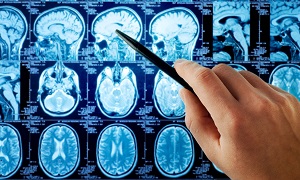Best Doctors in India for Ventriculostomy
Best Hospitals in India for Ventriculostomy
Reliance Hospital, Mumbai
- City: Mumbai, India
Hospital Highlights:
- Reliance Hospital is one of the best super-specialty care hospitals in Navi Mumbai.
- The main purpose of this hospital is to become a trustworthy place for the best health and hope for society. The hospital is well connected to the suburbs of Mumbai and Navi Mumbai.
- The hospital has various specialty departments, viz., Accident & Emergency, Anesthesiology, Dental Services, Dermatology, Diabetology, Dietetics Nutrition, Endocrinology, ENT, Gastroenterology, General Surgery, Gynaecology And Obstetrics, Hepato Pancreato Biliary Surgery, Infectious Disease, Internal Medicine, Interventional Radiology, Laboratory Medicine, Minimal Access Laparoscopic Surgery, Nephrology, Neurosciences, Opthalmology, Orthopaedics, Paediatrics, Pain Management Palliative Care, Physical Medicine Rehabilitation, Plastic And Reconstructive Surgery, Psychiatry, Pulmonary Medicine, Radiology, Rheumatology, Transplant, Urology Andrology, Vascular Surgery
Lilavati Hospital & Research Centre, Mumbai
- City: Mumbai, India
Hospital Highlights:
- Lilavati Hospital & Research Centre is India’s premier multi-speciality tertiary care hospital and has been recognised as a global medical excellence centre.
- Lilavati Hospital & Research Centre has built an unrivalled level of trust with its patients over the years, thanks to a solid foundation that comprises cutting-edge facilities, the best medical competence, research, education, and charity endeavours.
- The hospital is quite proud of the fact that it now serves patients from all kinds of backgrounds, not just from the United States but from all around the world.
- The hospital has a total of 323 beds, one of the largest Intensive Care Units (ICUs), 12 Operation Theatres with modern amenities, over 300 consultants, and almost 1,800 personnel.
Venkateshwar Hospital, Dwarka, New Delhi
- City: New Delhi, India
Hospital Highlights:
- State-of-the-art technology and devoted healthcare professionals have been brought together under one roof at Venkateshwar Hospital to provide genuine medical care. The hospital’s professionals work together as a team to deliver the best possible treatment to their patients, using the most sophisticated equipment and information technology.
- Venkateshwar Hospital’s mission is to attain global excellence in healthcare by employing evidence-based, ethical clinical practices and cutting-edge technology by a team of highly skilled experts.
MGM Healthcare, Chennai
- City: Chennai, India
Hospital Highlights:
- Located in Chennai, India, MGM Healthcare is a top multispecialty hospital that provides all medical services under one roof.
- Since its founding in 2019, MGM Healthcare has quickly become a leading national referral centre, creating several innovative flagship initiatives.
- MGM Healthcare combines next-generation medical and digital technologies to provide better patient results.
- With 12 centres of excellence, more than 400 inpatient beds, 100 intensive care unit beds, and 24/7 emergency care, MGM Healthcare leaves no chance in redefining the patient experience in Chennai.
- MGM Healthcare boasts 250+ expert doctors across 30+ departments, including Cardiology, Pulmonology, Neurology, Obstetrics & Gynaecology, and more.
- They house 12 specialized Centres of Excellence, including Neurosciences, Orthopaedics, and Multi-Organ Transplantation.
- Their team of doctors, nurses, and paramedics works together to give every patient individualized treatment.
Ventriculostomy
Ventriculostomy is a neurosurgical procedure that involves creating a hole within a cerebral ventricle for drainage. The procedure is performed on patients suffering from hydrocephalus.
Purpose
Preparation
If you show symptoms of hydrocephalus, your doctor will need to perform a few tests, before he/she can diagnose you.
MRI
Magnetic resonance imaging (MRI) is a technique that can produce cross-sectional images of your brain, using radio waves and a magnetic field. This test is painless and requires you to lie still, but it is a bit noisy.
MRI scans are able to show enlarged ventricles caused by excess cerebrospinal fluid. They may identify the underlying causes of hydrocephalus or other conditions that are contributing to the symptoms.
Children might need mild sedation for MRI scans. Most hospitals, however, uses a very fast version of MRI, for which sedation is no longer required.
Computerized tomography (CT) scan
Computerized tomography (CT) scan is a specialized X-ray technology that produces cross-sectional views of your brain. Though the scanning is painless and quick, children might receive a mild sedative before trying this.
There are few drawbacks to CT scanning-
Images are less detailed as compared to an MRI, and there is also an exposure to a small amount of radiation. Generally, CT scans for hydrocephalus are used only for emergency exams.
Ultrasound
Ultrasound imaging is a technique that uses high-frequency sound waves in order to produce images. It is often used for an initial assessment for infants since it’s a simple procedure with very low risks. The ultrasound device is placed over the soft spot (fontanel) on the top of the head of the infant. Ultrasound can also help to detect hydrocephalus prior to birth if the procedure is used during routine prenatal examinations.
Procedure
The procedure involves your surgeon making a hole in the floor of your brain so that the trapped cerebrospinal fluid can escape to the surface of the brain, where it can be absorbed. He/she uses a small video camera to have a direct vision inside the brain. The procedure is performed under general anesthesia.
After the procedure
- Drinking well
- Managing their pain
- Able to get out of the bed and safely walk around
It is important to see the doctor in 7-10 days after the procedure, to have the wound checked.
Risks & complications
Some of the few complications of a ventriculostomy include infection and bleeding.
Other risks include:
- Irritability
- Fever
- Drowsiness
- Vision problems
- Nausea or vomiting
- Headache
- Recurrence of any of the initial symptoms of hydrocephalus
Some patients of hydrocephalus might also require additional treatment, depending on if they have any severe long-term complications of hydrocephalus.








